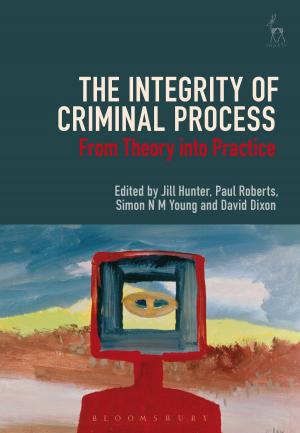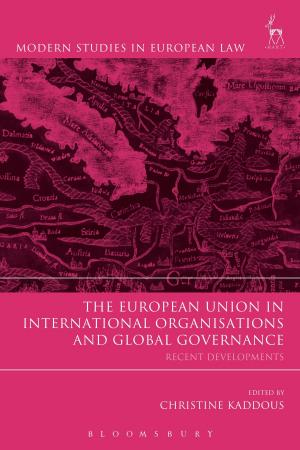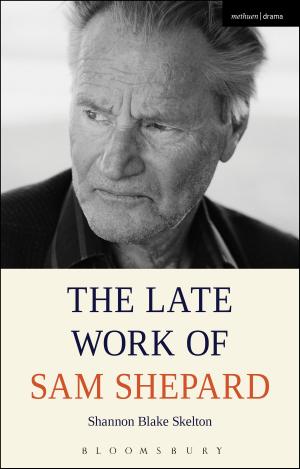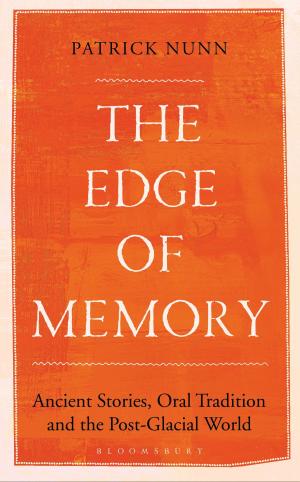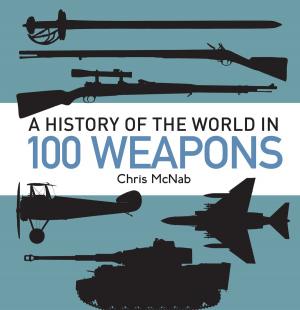Democracy, Sovereignty and Terror
Lakshman Kadirgamar on the Foundations of International Order
Nonfiction, Social & Cultural Studies, Political Science, International, International Relations, Biography & Memoir, Political| Author: | ISBN: | 9780857732668 | |
| Publisher: | Bloomsbury Publishing | Publication: | August 20, 2012 |
| Imprint: | I.B. Tauris | Language: | English |
| Author: | |
| ISBN: | 9780857732668 |
| Publisher: | Bloomsbury Publishing |
| Publication: | August 20, 2012 |
| Imprint: | I.B. Tauris |
| Language: | English |
'For those of us who have to live with terrorism, when we leave home in the morning there is no guarantee that we will come back.' Thus Lakshman Kadirgamar, Foreign Minister of Sri Lanka, foreshadowed his own assassination at his home in Colombo in August 2005. Kadirgamar had a clear and prophetic view not only of the conflict in Sri Lanka, but also of the threat posed by political violence to stability within and between states throughout the world.
Most conflicts since 1945 have involved parts of the world that have experienced decolonization and face the challenge of establishing states with legitimate borders, political systems and regional arrangements. It is therefore especially valuable to have the testimony of an internationally respected thinker and practitioner from a deeply divided post-colonial society.
Kadirgamar was a cogent analyst of political violence. Long before 9/11, he warned Western democracies that they were too passive about the fund-raising and planning activities of foreign terrorist movements that were taking place under their noses. He was consistently opposed to the use of terror and violence as a tool to promote any political ideology. While accepting that fighting terrorist movements sometimes required the use of armed force, he also saw such movements as a political phenomenon requiring a political response. Human rights and the rule of law, of which he was a lifelong advocate, had to be maintained and even strengthened.
He viewed the problem of political violence against the background of a profound understanding of the broader challenges of our times. He was an important and brave thinker and practitioner on an extraordinary range of issues in politics and international relations. He conducted the first-ever Amnesty investigation into the problems of a particular country – Vietnam. He believed in democracy for developing as well as developed countries. He identified directions which international cooperation should take, both regionally and globally. He urged action against the forcible recruitment of children as soldiers. Seeing the sovereignty and independence of states as an enduring foundation of international order, he was critical of doctrines and practices of unilateral interventionism. He emphasized the need to understand strategy as well as the international law in which he had been trained.
This definitive work explores the continuing relevance of Kadirgamar's ideas for the modern world. The first part contains new and insightful accounts of different aspects of his life and work, written by people who knew him. The second part contains a selection of his reports, speeches and lectures on major issues in politics and international relations. This book offers a convincing picture of a scholar-statesman who was both a realist and an idealist – and shows that these approaches can be combined both in thought and in action.
'For those of us who have to live with terrorism, when we leave home in the morning there is no guarantee that we will come back.' Thus Lakshman Kadirgamar, Foreign Minister of Sri Lanka, foreshadowed his own assassination at his home in Colombo in August 2005. Kadirgamar had a clear and prophetic view not only of the conflict in Sri Lanka, but also of the threat posed by political violence to stability within and between states throughout the world.
Most conflicts since 1945 have involved parts of the world that have experienced decolonization and face the challenge of establishing states with legitimate borders, political systems and regional arrangements. It is therefore especially valuable to have the testimony of an internationally respected thinker and practitioner from a deeply divided post-colonial society.
Kadirgamar was a cogent analyst of political violence. Long before 9/11, he warned Western democracies that they were too passive about the fund-raising and planning activities of foreign terrorist movements that were taking place under their noses. He was consistently opposed to the use of terror and violence as a tool to promote any political ideology. While accepting that fighting terrorist movements sometimes required the use of armed force, he also saw such movements as a political phenomenon requiring a political response. Human rights and the rule of law, of which he was a lifelong advocate, had to be maintained and even strengthened.
He viewed the problem of political violence against the background of a profound understanding of the broader challenges of our times. He was an important and brave thinker and practitioner on an extraordinary range of issues in politics and international relations. He conducted the first-ever Amnesty investigation into the problems of a particular country – Vietnam. He believed in democracy for developing as well as developed countries. He identified directions which international cooperation should take, both regionally and globally. He urged action against the forcible recruitment of children as soldiers. Seeing the sovereignty and independence of states as an enduring foundation of international order, he was critical of doctrines and practices of unilateral interventionism. He emphasized the need to understand strategy as well as the international law in which he had been trained.
This definitive work explores the continuing relevance of Kadirgamar's ideas for the modern world. The first part contains new and insightful accounts of different aspects of his life and work, written by people who knew him. The second part contains a selection of his reports, speeches and lectures on major issues in politics and international relations. This book offers a convincing picture of a scholar-statesman who was both a realist and an idealist – and shows that these approaches can be combined both in thought and in action.


